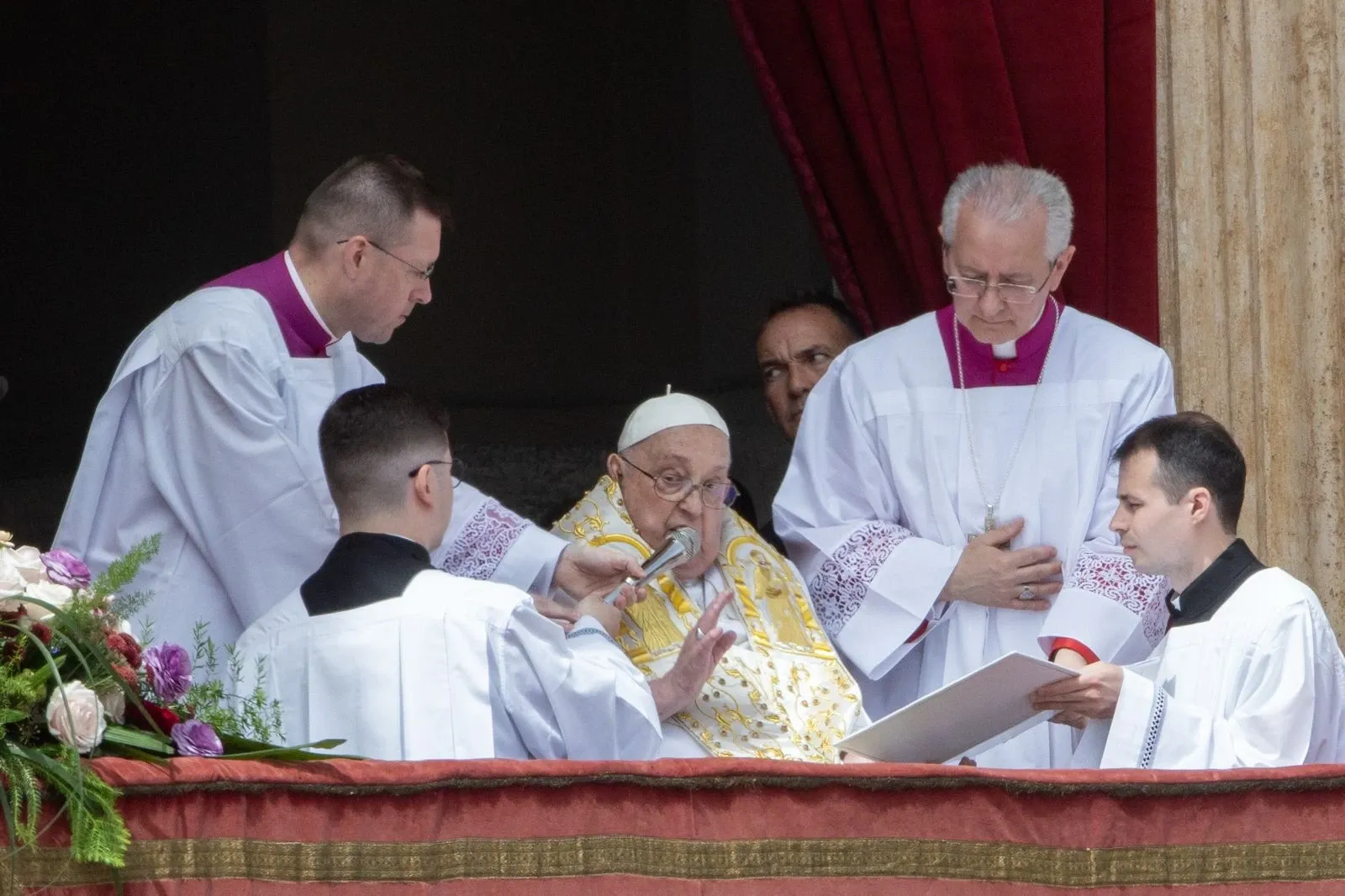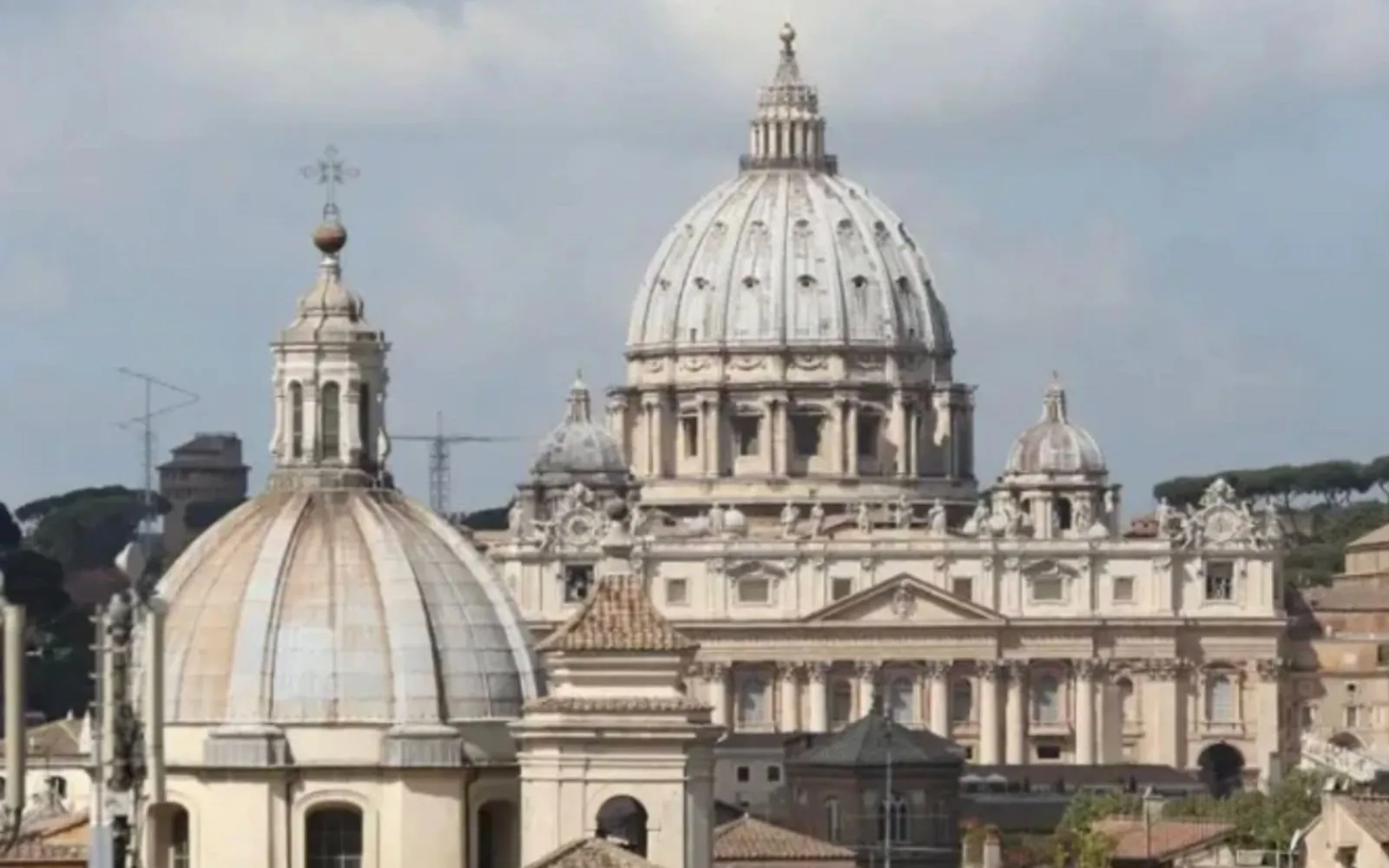I would like us to renew our hope that peace is possible! From the Holy Sepulchre, the Church of the Resurrection, where this year Easter is being celebrated by Catholics and Orthodox on the same day, may the light of peace radiate throughout the Holy Land and the entire world. I express my closeness to the sufferings of Christians in Palestine and Israel, and to all the Israeli people and the Palestinian people. The growing climate of anti-Semitism throughout the world is worrisome. Yet at the same time, I think of the people of Gaza, and its Christian community in particular, where the terrible conflict continues to cause death and destruction and to create a dramatic and deplorable humanitarian situation. I appeal to the warring parties: call a ceasefire, release the hostages and come to the aid of a starving people that aspires to a future of peace!
Let us pray for the Christian communities in Lebanon and in Syria, presently experiencing a delicate transition in its history. They aspire to stability and to participation in the life of their respective nations. I urge the whole Church to keep the Christians of the beloved Middle East in its thoughts and prayers.
I also think in particular of the people of Yemen, who are experiencing one of the world’s most serious and prolonged humanitarian crises because of war, and I invite all to find solutions through a constructive dialogue.
May the risen Christ grant Ukraine, devastated by war, his Easter gift of peace, and encourage all parties involved to pursue efforts aimed at achieving a just and lasting peace.
On this festive day, let us remember the South Caucasus and pray that a final peace agreement between Armenia and Azerbaijan will soon be signed and implemented, and lead to long-awaited reconciliation in the region.
(Story continues below)
May the light of Easter inspire efforts to promote harmony in the western Balkans and sustain political leaders in their efforts to allay tensions and crises, and, together with their partner countries in the region, to reject dangerous and destabilizing actions.
May the risen Christ, our hope, grant peace and consolation to the African peoples who are victims of violence and conflict, especially in the Democratic Republic of the Congo, in Sudan and South Sudan. May he sustain those suffering from the tensions in the Sahel, the Horn of Africa and the Great Lakes region, as well as those Christians who in many places are not able freely to profess their faith.
There can be no peace without freedom of religion, freedom of thought, freedom of expression and respect for the views of others.
Nor is peace possible without true disarmament! The requirement that every people provide for its own defence must not turn into a race to rearmament. The light of Easter impels us to break down the barriers that create division and are fraught with grave political and economic consequences. It impels us to care for one another, to increase our mutual solidarity, and to work for the integral development of each human person.
During this time, let us not fail to assist the people of Myanmar, plagued by long years of armed conflict, who, with courage and patience, are dealing with the aftermath of the devastating earthquake in Sagaing, which caused the death of thousands and great suffering for the many survivors, including orphans and the elderly. We pray for the victims and their loved ones, and we heartily thank all the generous volunteers carrying out the relief operations. The announcement of a ceasefire by various actors in the country is a sign of hope for the whole of Myanmar.
I appeal to all those in positions of political responsibility in our world not to yield to the logic of fear which only leads to isolation from others, but rather to use the resources available to help the needy, to fight hunger and to encourage initiatives that promote development. These are the “weapons” of peace: weapons that build the future, instead of sowing seeds of death!
May the principle of humanity never fail to be the hallmark of our daily actions. In the face of the cruelty of conflicts that involve defenceless civilians and attack schools, hospitals and humanitarian workers, we cannot allow ourselves to forget that it is not targets that are struck, but persons, each possessed of a soul and human dignity.
In this Jubilee year, may Easter also be a fitting occasion for the liberation of prisoners of war and political prisoners!
Dear brothers and sisters,
In the Lord’s Paschal Mystery, death and life contended in a stupendous struggle, but the Lord now lives forever (cf. Easter Sequence). He fills us with the certainty that we too are called to share in the life that knows no end, when the clash of arms and the rumble of death will be heard no more. Let us entrust ourselves to him, for he alone can make all things new (cf. Rev. 21:5)!
Happy Easter to everyone!

Pope Francis was born Jorge Mario Bergoglio on Dec. 17, 1936 in Buenos Aires. After earning a secondary school degree as a chemical technician, Bergoglio felt a call to the priesthood as a Jesuit, joining the novitiate in 1958, at the age of 22.
He was ordained a priest on Dec. 13, 1969. In 1973 he made his perpetual vows in the Society of Jesus and the same year was elected Jesuit provincial for Argentina. He would go on to serve as a seminary rector, a pastor, a professor, and a spiritual director.
In 1992 Fr. Bergoglio was consecrated an auxiliary bishop of the Buenos Aires archdiocese. He became the archdiocese’s coadjutor archbishop in 1997, and succeeded as archbishop the following year. St. John Paul II named Archbishop Bergoglio a cardinal in 2001.
As president of the Argentine bishops’ conference from 2005 to 2011, Bergoglio attended the Fifth Latin American Episcopal Conference held in Aparecida, Brazil in May 2007.
He was in charge of the drafting of the meeting’s final document, which came to be known as the Aparecida document, recognized as an important guiding document for the Church in Latin America and beyond.
On March 13, 2013, Bergoglio was elected to the papacy, at the age of 76. He was the first Jesuit and the first Latin American to become pope.








